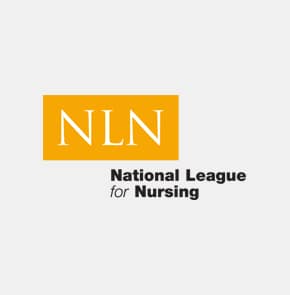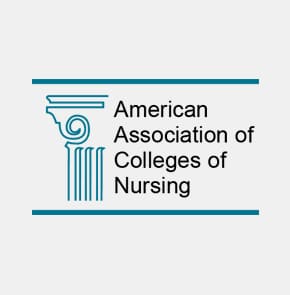What Does a Career as a Nurse Educator Entail?
If you’re considering returning to school to earn a master’s degree in nurse education (and a nursing education degree program offers the most common nursing degree focused on nurse educators) you should know what this career choice means for you.
As an RN with a master’s nursing education degree, usually from an MSN degree program, you’ll still need to complete advanced education and training, such as a master's in nursing education or MSN nurse educator program. Once you graduate and obtain the required licensure for your position, you’ll start working as nursing faculty to mentor and train incoming nursing students who may or may not already work in nursing practice and all come from a wide range of educational levels and professions. You may work in a college of nursing, school of nursing, or an online MSN degree program offered by many colleges and universities throughout the US, or you may also work part-time or full-time in a clinical practice where you’ll perform health assessment and evaluation functions and also teach patients who have been admitted for treatment what they need to know about their illness and treatment as a part of your certified nurse educator role. Either way, nurse educators and nurse faculty work in academic and clinical settings where students get hands-on nursing practice and learn assessment and evaluation strategies, nursing theory, nursing science, and clinical skills. A nursing online program cannot provide future nurses with the hands-on experience required, only active nursing practice in academic and clinical settings, such as that offered by a master's in nursing education program, can fully prepare nurse educators.
Academic nurse educators who work as nursing faculty in nursing education programs perform curriculum development; assess student learning; use learning platforms that encourage students; document educational outcomes; coach, mentor, and advise students; provide instructional feedback; stay current with new trends in nursing and clinical skills; complete nursing research and write grant proposals; attend educational workshops; participate in professional associations; and present at nursing conferences.

Components of a Successful Nursing Education Career
If you work in a hospital setting or clinical practice in a certified nurse educator role, you’ll be responsible for ensuring that staffing is sufficient for the patient load. Because of your experience, you’ll use procedures or equipment that other nurses may not know how to use. You’ll also ensure that more junior nurses learn these procedures and equipment.
You’ll assess the need for additional training, then find the materials and make recommendations within your health organization.
To be a successful in nursing education, you need several skills:
- Relationship-building
- Organization
- Mentoring
- Research
- Curriculum Development
- Student Assessment and Evaluation
Because of your advanced nursing education and role, you’re more likely to be able to work a set 8-5 or 9-5 schedule. Your new job may include less direct contact with patients since you’ll be more involved in training and administration.
Featured Online Programs
How to Earn a Nurse Educator Education
Typical Nurse Educator Degree Requirements
You’ll need to complete, on average, about 33 credit hours, although you may be required to take between 38 and 39 credits at a different university. Overall, you should expect to spend between 22 and 24 months in your nursing educator program.
Requirements for Online Masters
 A nursing education program will give you what you need to know to teach incoming nurses about the procedures they need to know in their own nursing careers. Because you’ll be in a teaching role, you’ll also learn about pedagogical methods of teaching so your students will have the best opportunity to learn what they need.
A nursing education program will give you what you need to know to teach incoming nurses about the procedures they need to know in their own nursing careers. Because you’ll be in a teaching role, you’ll also learn about pedagogical methods of teaching so your students will have the best opportunity to learn what they need.
After earning an MSN degree from a nursing education program, you’ll be able, either to teach incoming nurses or move into direct patient education and safety. This allows you to change the path of your career without having to leave your field.
Typical Nurse Educator Certifications Needed
Because nurses are so badly needed in the medical field, earning a certification makes you even more valuable to your employer. The American Nurses Credentialing Center (ANCC) provides such credentials to incoming nurses.
Find Your Online Nurse Educator Program
The National League for Nursing has a certification program specifically for nurse educators. Here, the Academic Nurse Educator Certification Program requires you to perform at a high level and pass those high standards on to incoming nursing students. Within this certification specialization, you also have the Certified Academic Clinical Nurse Educator or CNE-cl.
Academic Standards for a Nurse Educator
 Even before you enter a nurse educator program, you’ll have to satisfy several requirements. You’ll have to hold your BSN and maintain a cumulative GPA of 3.0 on a 4.0 scale for the past 60 semester hours or 90 quarter credit hours.
Even before you enter a nurse educator program, you’ll have to satisfy several requirements. You’ll have to hold your BSN and maintain a cumulative GPA of 3.0 on a 4.0 scale for the past 60 semester hours or 90 quarter credit hours.
Your official transcripts have to show that you completed a three-semester credit hour undergraduate course or its equivalent in statistics with a “C” or better. You also have to show proof that you completed an undergraduate nursing research course or its equivalent with a similar grade.
You should hold a valid and unencumbered license as a registered nurse in the U.S. state or territory in which you are licensed.
Exam/Experience Needed for a Nurse Educator
Before you become a nurse educator, you need to have specific types of experience:
- Work experience—you need to know nursing in order to teach it
- Teaching ability—Explain new concepts succinctly to students who have a range of learning styles
- Education—You need the right education so you can pass your knowledge on to new students
- Passion—You need a love of nursing
- Skills with people—Know how to interact with people so you can connect with them and teach them
Online Nurse Educator Degree Options
Enrolling into an online master of science in nursing (MSN) program, you’ll have the knowledge you need to begin working in academia as a nurse educator. If you prefer, you can work as an educator in a clinical setting, teaching patients how they need to manage newly diagnosed health conditions, such as diabetes.
Due to the ongoing nationwide nurse shortage, it’s imperative for university nursing programs to teach and train new nurses so this shortage can be alleviated. More nurse educators will be needed to help teach incoming nursing students.
This listing is only a very brief mention of the courses you’ll need for your degree:
- Pharmacology
- Teaching and Learning Strategies in Nursing
- Curriculum Development and Evaluation in Nursing Education
- Advanced Health and Physical Assessment
- Evaluation of Educational Outcomes in Nursing
Online Master’s with Cost Range
Returning to school for your master’s in nursing education won’t be easy—or cheap. Aside from tuition, you’ll have a long list of fees to pay for.
Tuition may run about $650 per credit hour. Then, you have your application fee, which is a one-time fee. The amount depends on the university.
Depending on the university, you may need to pay for a background check and/or drug screening, a student services charge which is applicable per session or semester, and a course resource fee which is charged for each course you take.
Next, you’ll pay a fee for advanced practice registered nurses (APRN), a one-time fee, and one for your books and supplies, which will depend on the university you are at-tending.
Nurse Educator Careers & Salaries
While nursing is a hot field, in high-demand according to the Bureau of Labor Statistics, differing levels of education mean that your salary will be affected by the degree you earned. Nurse educators in a high-level academic setting are required to hold a master’s degree in nursing or even a Doctor of Nursing Practice if they wish to gain tenure. On average, they can expect to earn a salary of $72,000.
Nursing instructors (distinguished from their nursing educators by virtue of the level of their degree program) can expect to earn about $60,307 annually. Nursing instructors must earn at least a bachelor’s degree to instruct nursing students. The average nursing teacher can expect to earn $73,460 per year.
Nurse educators manage the continuing education of nursing staff and caregivers at a healthcare facility. They should work alongside hospital administrators in creating and developing programs for continuing education and staff evaluations. They are also responsible for creating new policies and systems that touch on patient care.
The educator inspects a range of healthcare needs to ensure that medical staff have handy the educational resources they need. The nurse educator may also have an employee remediation program available for staff needing this service.
Fields of Study
- Master of Science in Nursing, Nursing Education—Nurse educators manage the continuing education of nursing staff and caregivers at a nursing facility. They may work with the hospital administrator. They are responsible for creating evaluating and continuing education programs to be used by staff members. Nursing educators may also develop training guides and educational manuals.
- Nurse Educator— A nurse educator helps to analyze a large range of healthcare needs so the best educational resources can be obtained for hospital or clinical staff. They are also responsible for developing systems and procedures, and aid in creating new facility policies that mean the staff will be able to offer the best healthcare in the safest environment. In addition, the nurse educator may also develop and deliver presentations to various groups. This may happen via videoconference or in person.
- Nursing Instructor— This nursing professional isn’t required to earn a master’s degree. Instead, they can earn a bachelor’s degree in nursing from an accredited nursing program. A degree program may be accredited by the Commission on Collegiate Nursing Education (CCNE) or the National League for Nursing (NLN) Commission for Nursing Education. They also need at least three years’ experience as a registered nurse or even a licensed vocational nurse. They will also support the nursing coordinator and director of the teaching facility as they work to recruit staff and faculty members.
Annual Salary by Occupation
Nurse educators are highly specialized and trained professionals whose work takes place in a teaching facility. You are an RN with your Master of Science in Nursing. In your professional role, you serve as a member of the faculty in a teaching hospital or a school of nursing, passing on your skills and knowledge to new, incoming nurses.
Find Online Nurse Educator Schools
You may be a nurse educator in one discrete specialty, such as obstetrics, which is the study of pregnancy and childbirth. You may be responsible for teaching a nursing course in your particular specialty. In addition, you help to supervise students when they are working on their clinicals in the hospital setting.
- Nursing Educator— As of May 2013, nurse educators were able to earn $65,940 in median annual salary. In general, a nurse educator is required to hold a master’s degree because they are expected to teach highly specialized material. Nurse educators can be found in universities, colleges, and professional schools. They also work in junior colleges, trade, and technical schools, or general medical and surgical hospitals.
| Occupation | Entry-Level Salary | Mid-Level Salary | Late-Career Salary |
|---|---|---|---|
| Nurse Educator | $72,000 | $73,700 | $83,900 |
| Nursing Instructor | $59,800 | $61,600 | $62,600 |
| Postsecondary Professor - Nursing | $65,000 | $75,000 | $89,500 |
Important Questions to Ask (FAQ)
How Long Does It Take to Earn a Nurse Educator Master’s Degree Online?
Because you have already completed a bachelor’s nursing degree program, you have the bulk of your courses already completed. You’ll only have to focus on the required courses for your MSN Nurse Educator.
From beginning to the completion of your capstone project, thesis and EBP project, an MSN program usually lasts two academic years.
How Much Does an Online Nurse Educator Master’s Degree Cost?
At one university, graduate nursing programs across the spectrum all have the same per-credit tuition rate of $600. If students are enrolled in the distance learning option, they pay an additional $135.
If you are enrolled as a full-time student at a university, you should be taking a minimum of 9 credit hours per semester.
Does the School Have the Major You’re Considering?
Not every university or college will carry the same majors. If you are determined to major in a master of Nurse Education program, you may find that not all colleges will carry this program.
This means you’re going to have to shop around to find the ones that do have it. If you don’t mind taking your courses online, then you should look for a university that has an online (or even a hybrid) nurse educator program.
How Many Students Graduate “On Time,” in Four Years?
Not every undergraduate student graduates in the fourth year of their education. In fact, incoming freshmen face a less-than 50% chance of earning their undergraduate degrees within that four-year timeframe.
As a graduate student, you’ve already faced this percentage. You might even have realized that, if you took just one more 3-credit course per semester, this will bring you closer to your required credits to graduate; and by taking just a few summer session credits, you could be either at or just beyond the required credit hours to graduate.
What Kind of Accreditations Does the Online Program Hold? How is it Regarded in the Field?
Accreditation is vital. It’s just as important as the student health center or the financial aid office is to the student body. As you are comparing nurse educator programs at different universities, don’t forget to look for institutional and program accreditation.
Institutional accreditation says the entire college has high-quality course offerings and faculty. Program accreditation for your nurse educator program should come from either the Commission on Collegiate Nursing Education (ACEN) or Accreditation Commission for Education in Nursing (ACEN).
Accreditation is not a mandatory step, but it does signal to you which programs are truly of the highest quality. You’ll realize benefits far beyond a high-quality education when you start looking for a position.
Software, Technology & Skills Needed
As you start on your way toward becoming a nurse educator, you need specific skills that will benefit you and your students.
- Research—You’re going to work heavily on research, so it’s to your benefit to learn this skill early.
- Leadership—You’ll be leading your students on the path to becoming the best nurses they can. In addition, you’ll be writing scholarly papers on nursing and getting them published in professional publications.
- Mentorship—If you have the gift of using your own experience and knowledge to help others, then you are a mentor. University students on several levels rely on mentors to help guide them.
You’ll need to be familiar with technology. You’ll likely be creating online courses, simulated environments, and putting coursework on mobile technology. If you know you’re going to be using technology heavily, get familiar with it before you enter your nurse educator program.
Nurse Educator Scholarships
-
National League for Nursing Foundation
Amount: $8,000
Deadline: May 29As the National League for Nursing (NLN) works to build a diverse nursing workforce, it has announced scholarships of $8,000 each for nurses who are pursuing advanced degrees in accredited nursing programs. Eligible students should be working toward advanced degrees in nursing education. They must have completed at least one full year of a nursing program and be members of NLN as individuals or via their schools or employers. Applications require proposals that highlight the need for financial support, an outline of a program of study, relevance of their project to the NLN, their future goals as nurse educators, a budget narrative, and two letters of recommendation.
-
WGU-ANPD Excellence in Nursing Education Scholarship
Amount: $2,000
Deadline: VariesScholarships valued at $2,000, payable in increments of $500 per six-month term, for up to four terms. This scholarship is intended for online students of WGU who are pursuing a bachelor’s or master’s degree in healthcare or nursing. The Linda Knodel Leaders in Nursing and Health Scholarship is awarded once per quarter to new MSN or health leadership students who have exemplified the spirit and commitment to leadership as lived by Linda Knodel as she worked with AONE.
Search Programs Offering Nurse Educator Majors
-
AfterCollege/AACN Scholarship Fund
Amount: $2,500 (8 Awards per year)
Deadline: January 31, April 30, July 31, October 31This $2,500 scholarship is awarded to nursing students at the baccalaureate, master’s, or doctoral levels. Nursing students who have entered a graduate program, plan to become nurse educators, or who are completing their RN to BSN or RN to MSN programs, as well as those who are enrolled in accelerated programs will be considered.
Professional Nurse Educator Organizations
- ANPD
- NLN
- AACN

ANPD
Association for Nursing Professional Development
ANPD strives to advance nursing professional development in order to enhance healthcare outcomes. To this end, professional development as a specialty in nursing practice will be defined by specific standards, critical to quality patient care and or-ganizational outcomes, and based on research. ANPD has developed a platform that focuses strongly on Managing Transition, NPD Role Delineation, ANPD Value Propo-sition, and Leadership. ANPD’s goal is to be viewed as the expert and leading resource for nursing professional development practice.

NLN
National League for Nursing
NLN is widely viewed as the premier organization for nursing education leaders and nurse faculty. It offers professional development, testing services, networking opportunities, public policy initiatives, and nursing research grants. NLN members represent programs in nursing education across the range of higher education, health care organizations, and agencies. NLN was founded in 1983 as the American Society of Superintendents of Training Schools for Nurses. It was the first nurse educator organization in the U.S.

AACN
American Association of Colleges of Nursing
AACN is the organization that speaks for academic nursing education. It works to develop quality nursing education standards, provides an influence for the nursing profession at large to improve healthcare, assists nursing schools to implement the highest standards, and helps to promote public support for professional nursing education, research, and practice. AACN influences curriculum standards and hosts conferences and webinars for members of this organization.
Choosing an Accredited College
Accreditation (institutional and programmatic) are both vital if you and your patients are going to benefit from your studies. It marks the university and program as being of high quality.
When it comes to nursing programs, look for accreditation from the Commission on Collegiate Nursing Education. This oversees programs offering baccalaureate degree nursing programs, master’s degree programs in nursing, and doctor of nursing programs.
As you evaluate which school to enter, look for programs and universities that have been officially recognized by the U.S. Secretary of Education. If you search the DOE website for accreditation agencies, you’ll find CCNE on that list as a valued resource.
Online vs. On-Campus vs. Hybrid
You have new options with which to pursue your education. If you can’t realistically leave work every day or drive a long distance to attend classes on-campus, you may be able to earn your degree with on online or hybrid class format. Each option has its pluses and minuses.
With on-campus, you attend classes on a strict schedule. If you have a crisis in the hospital or at home, the class goes on, regardless. However, you’ll be able to meet your professors and fellow students with this option—something that will be an advantage during study crunch times.
In an online format, you take all of your classes, quizzes, and class discussions to the internet. You’ll be able to set times and days for studying that work with your schedule. If you can’t stop to study because of a patient emergency, the link for that class will still be there.
One drawback to this option: you won’t meet your professors or fellow students in person.
With a hybrid-based education, you’ll get the best (and worst) of both the on-campus world and the online world. Your transportation costs will be much lower because you don’t have to go to the campus very often—usually once or twice per term. You’ll also have the opportunity to spend time with fellow students and your professors during your “residence” weekends.
On the downside, outside of those residencies, you’ll still be the sole student wherever you’re studying. You won’t be able to turn to a fellow student to ask a question.
Frequently Asked Questions
Does the College Have Post-Graduate Job Placement Help and Assistance?
As you get closer to graduation, it’s time to start turning your thoughts toward your first job after graduation. You might have trouble updating and refining your resume, working on individualized cover letters, and setting up interview appointments. After all, you’ll be working on your capstone or thesis and beyond busy. A Career and Placement Services office on campus can help with some of the legwork. You’ll be able to access jobs, internships and, if needed, on-campus jobs. Schedule appointments with career services staff to explore nurse educator careers and positions. Receive resume feedback and assistance in writing a cover letter that will be noticed. Finally, you’ll be able to take part in on-campus job search events.
Why You Need to Consider the Overall National Rankings of the College and its Effects on Your Career or Salary
The schools that are featured in “top 20” lists do tend to lead to the highest employment averages. Students who graduate from one of these 20 colleges boast, on average, an employment rate of 84%. In comparison, the overall average is only 50%.
Within a top 20 school, choices of major also impact employment. Even with the nursing shortage, engineering students claim the second-highest employment rate of 54%. Make note of the top 20 colleges if high probability matters to you.
What does a nurse educator do exactly?
Well, there are many responsibilities that a nurse educator might have depending on where they work. Generally, they are best known for leading clinical rotations for nurses in training. They walk them through the various responsibilities of being a nurse and ensure that they are performing their duties correctly and in a way that will not cause harm to patients. Not only do they walk students through these tasks and teach clinical skills and patient care, but they often create the curricula that is followed at teaching hospitals. And they do this all while maintaining the required certifications and credentials so that they are properly licensed as nurses themselves. Finally, they may also instruct on hospital research, ensuring that staff understand and incorporate the newest evidence-based practices.
What skills will I need to be a nurse educator?
First, you’ll need to have the ability to communicate easily and effectively in order to teach and pass on the knowledge and skills that the next generation of nurses need in order to succeed and care for patients. You’ll also need to be able to lead as leadership and professionalism can help you get through to difficult students and maintain calm in what can be a very stressful environment. Finally, you’ll need knowledge and experience to get you started. You must know what best practices are in order to pass them on to students. This means gaining the necessary education, ensuring that you are a lifelong learner so you can gain new knowledge as it becomes available, gaining experience in a hospital or clinical environment, etc.
How long should it take you to become a nurse educator?
Assuming everything goes perfectly, it should take around six to ten years to become a nurse educator. This is because you are likely to need to earn a bachelor’s and master’s degree to get into this specific field. And you’ll need some experience, as mentioned above. So, assuming you take the normal amount of time to graduate, six to ten years is enough time for you to gain all of that and find an open nurse educator position.
